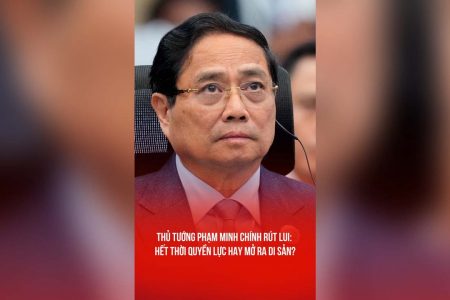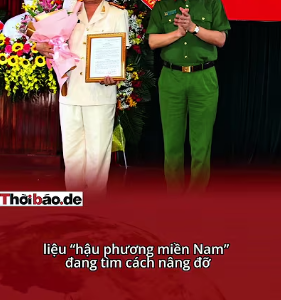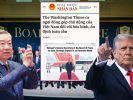
Before Chinese President Xi Jinping’s visit to Vietnam, according to analysts, it was a must.
Beijing’s highest goal is to force the Vietnamese leadership to return to China’s circle as before, after a period of time when the „prodigal son“ suddenly became stubborn and showed signs of staying away from the mother country.
Second, it is said to be the pettiness of the Great Chinese bad habit of considering himself the father of the world. Therefore, Xi needs to upgrade the Vietnam-China relationship to a higher level, even though it is already at the highest level.
Beijing always wants to be in a „higher“ position, at a higher level, and cannot be ranked equal with countries that are also „comprehensive strategic partners“ of Vietnam, such as the US, Japan, India, Australia, or South Korea.
Before the visit, experts said that there was a very high possibility that Vietnam would have to accept the consensus on a „community of shared destiny“ with China.
But unexpectedly, the concept of „a community with a shared future“ was included in the Press Release at the last minute, although in essence it is not much different. This is said to be due to the sensitivity of language, and because anti-China sentiment is very strong in Vietnam.
Commenting on Beijing’s „step back“ in the article „‚Stabbing himself with a rock, Mr. Xi has a ‘Community of Shared Destiny’ with Hanoi,“ veteran diplomat, Dr. Dinh Hoang Thang, former Vietnamese Ambassador to the Netherlands said:
“Vietnam’s position and strength are not like in the past, China cannot do whatever it wants…, in what position does Mr. Xi come to us this time? China once ‘rose strongly’ to further suppress Vietnam, or in the position of a China facing ‘all enemies’ came to Hanoi to entice Vietnam to climb onto the faltering boat at risk of overturning?”
This argument is considered similar to the opinions of experts who say „This time, Mr. Xi came in a defensive position, not in a position to overwhelm Hanoi like the previous two times.“ And fortunately for Mr. Xi, in the Vietnam-China Joint Declaration, the two sides finally agreed to upgrade relations, building a „shared future“ instead of a „community of shared destiny.“
Previously, the schedule of Mr. Xi’s visit to Hanoi was moved or changed five or seven times, and there were even rumors that the visit would be canceled. This shows that Mr. Xi Jinping and the Beijing leadership may have wrongly predicted the persistent resistance of Vietnam’s „bamboo diplomacy.“
Before Mr. Xi arrived in Hanoi, Nhan Dan newspaper and a number of other Vietnamese newspapers published an article believed to have been sent by him. In it, Mr. Xi compared this visit to „relatives, neighbors, both comrades and brothers, two countries with mountains connected to mountains, rivers connected to rivers like lips and teeth.“ According to observers, this is a message that Beijing leadership wants to show they affirm that they will continue to control Vietnam more tightly.
This makes public opinion in Vietnam about the Chinese President’s visit even hotter. Mr. Xi’s foolish actions disrupted the overall situation, and were compared to „shooting himself in the foot.“
Not only that, on the last day of his presence in Hanoi, President Xi Jinping also asked the Vietnamese side to fight against attempts to „cause trouble“ in the East Sea (South China Sea) from outside.
Speaking to Vietnamese Prime Minister Pham Minh Chinh, Mr. Xi reminded: „China and Vietnam should be vigilant and oppose any efforts to cause chaos in the Asia-Pacific region.“
These things clearly show that President Xi is targeting the United States, a new comprehensive strategic partner of Vietnam.
In the context of Vietnam and China having many disputes over territorial sovereignty in the East Sea, Vietnam has repeatedly accused China of violating its exclusive economic zone, as well as conducting militarization activities in the area. Recently, China again introduced a 10-dash „cow’s tongue“ line map, with claims overlapping with the territorial waters claimed by Vietnam.
According to analysts, although Vietnamese leaders support participating in China’s „Community of Shared Future“ similar to the concept of „Community of Common Destiny,“ the vast majority of people oppose it, saying that Vietnam cannot share the same fate with a country that is having a territorial sovereignty dispute in the East Sea.
Therefore, no matter what, the Vietnamese leadership’s participation in China’s „future sharing community“ is also an act of betraying the country.
Thoibao.de (Translated)


























